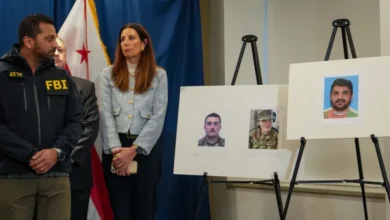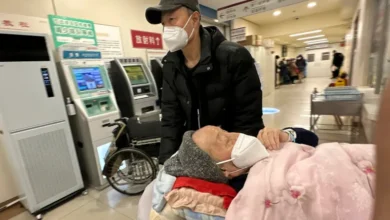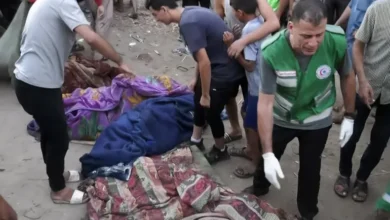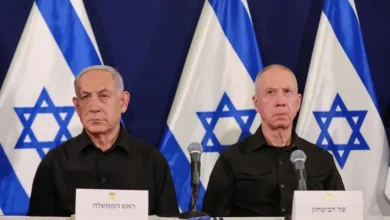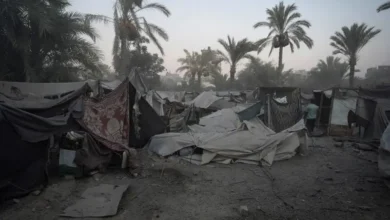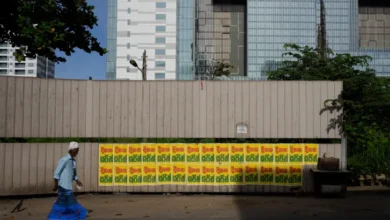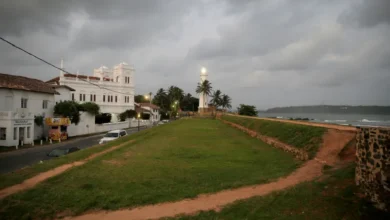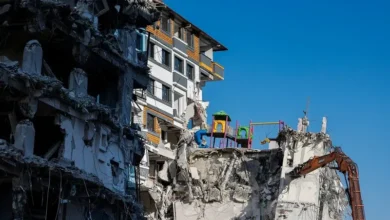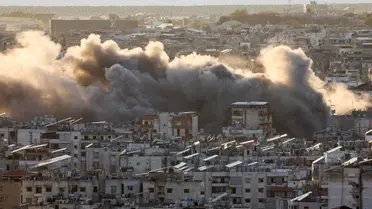‘No other land is home’: Amid Israel bombs, a Gaza City family won’t leave
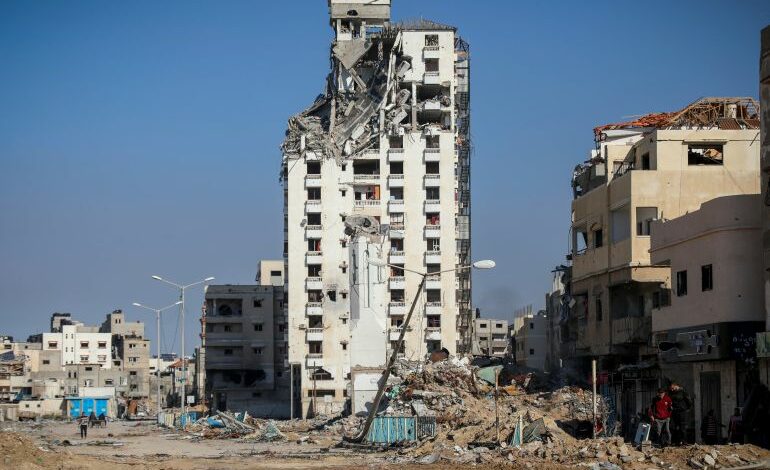
The Abu Shahla family stayed resolute in their house at the centre of Gaza City for two weeks after the Israeli army launched its ground operations in the city.
All the while through, their walls shook repeatedly and their hearts were filled with fear. Eventually, they had no choice but to leave what once was their decades-old home.
“My grandparents were forced to flee their home and belongings in 1948,” said Amal, 24, referring to the forced displacement of 750,000 Palestinians during the creation of Israel, a period known as the Nakba or “catastrophe”. “And today we, the younger generations, are living a microcosm of their experience of forced displacement.”
Recalling the horrific days that preceded the family’s evacuation of their house in October, Amal told Al Jazeera that knowing that it would likely be destroyed, and so she wouldn’t be able to return to it, meant losing “everything” to her.
“It felt like recapping every day we have lived here, eaten with our friends, danced with our mom, slept with our babies, cried for a bad day, studied for a school quiz, innovated the kitchen and cooked our favourite dinner and everything erased. All together in seconds.”
Still, the family refuses to leave Gaza City. Around 20 members of the family are living in Amal’s aunt’s one-bedroom apartment along with 15 other neighbours.
Israeli tanks rule the streets of the besieged strip’s largest city. The Abu Shahla family can only move out when there’s no fighting around the house where they have taken refuge. They have little access to food and aid, including medical treatment.
Yet, the family say that even if they were able to safely leave Gaza City, they wouldn’t go to the south or anywhere else. Nowhere is safe in the whole Gaza Strip, with Israel bombing the southern city of Rafah and tanks bombarding Khan Younis, also in the south, they say. And even if it were, the fear of permanently getting displaced again — as their ancestors did in 1948 — is enough reason to “stay steadfast in our land and confront uprooting”, said Abu Rushdi, Amal’s 64-year-old grandfather.
“We can build another house. We will do that. But we can’t have another land that we can call home,” he said. “We only have one, and that’s Palestine.”
Still, the prospect of their home being demolished by Israeli bombing or bulldozers is one that brings “grief”, said Amal.
“I wish that leaving home had meant losing only some walls that together make rooms and a property,” she said. “But it initiates a painful journey of further trauma, amounting the feeling of loss to every sense of familiarity and belonging in our own neighbourhood, our city, our homeland.”
Her younger sister, Ruba, had just started work on her undergraduate research paper in the humanities this semester before the war began.
“When we learned of Israeli tanks approaching our neighbourhood after we fled, we felt like someone has torn apart our identity cards and deemed us refugees, one more time after that of our grandparents in 1948,” Amal said.
As winter creeps in, families across Gaza are more vulnerable than ever, especially with a weeklong truce that brought a temporary halt to fighting in late November now over.
Yet Abu Rashdi, Amal’s grandfather, refuses to give up — and will not entertain the thought of leaving, even as Israeli authorities have tried to push the people of Gaza into a small patch of land in the south of the strip.
He said his family was one of many in Palestine “insisting that we stay in our land, despite the fear all around us”.
“They [Israel] have way more power and force to keep doing what they are doing to us, but we have all the right to live and enjoy the basics of a human life in Gaza and all of Palestine once this nightmare is over.”
